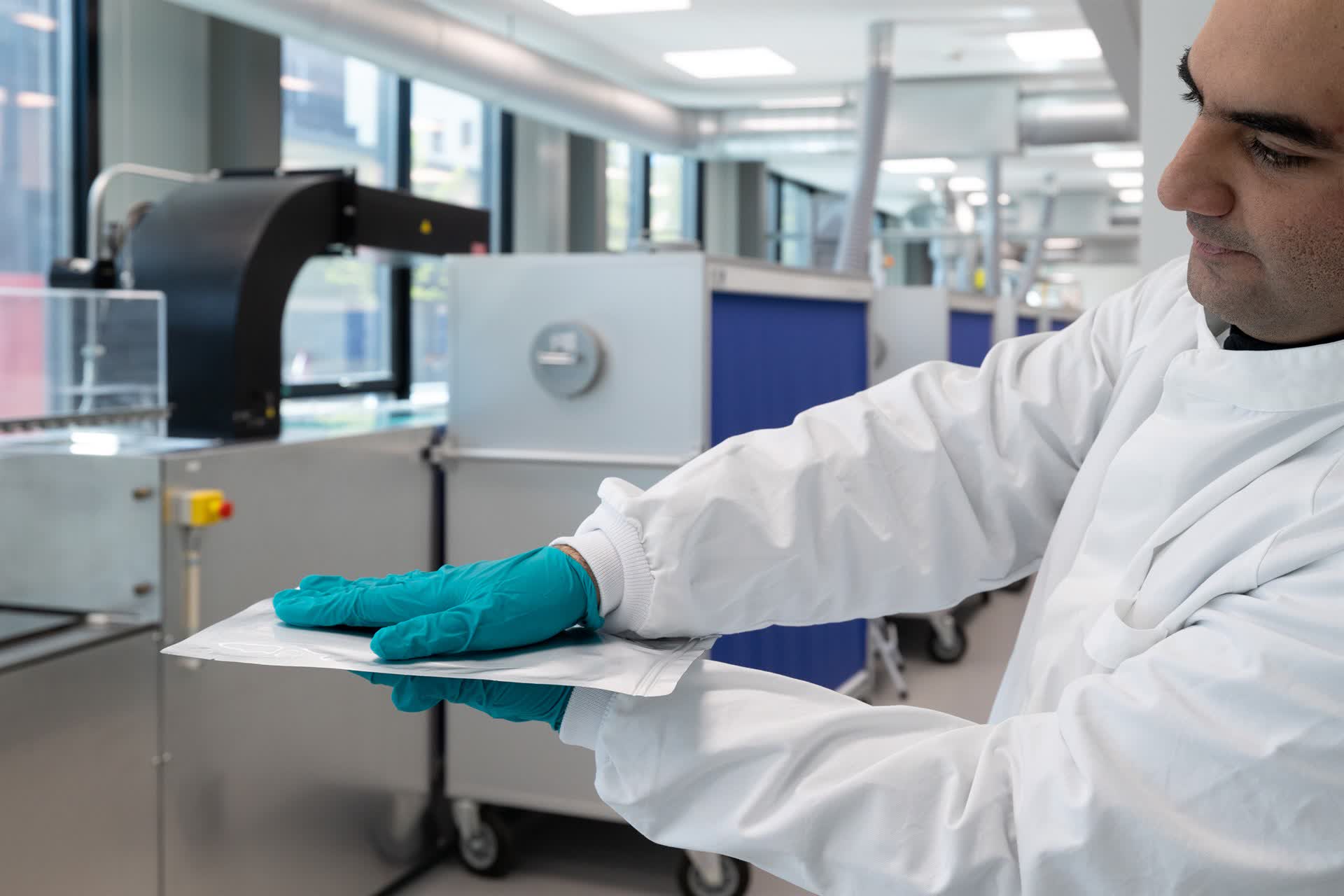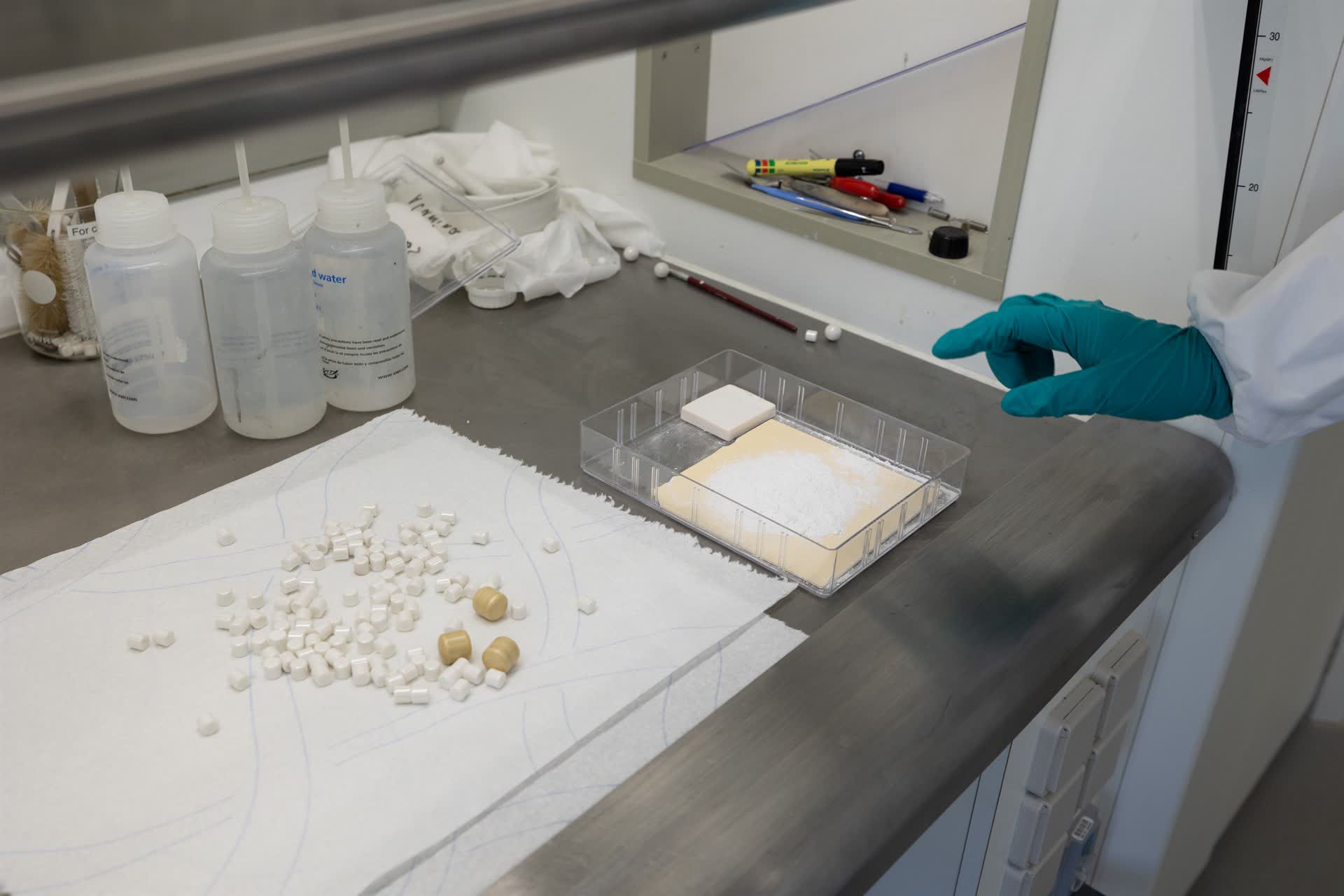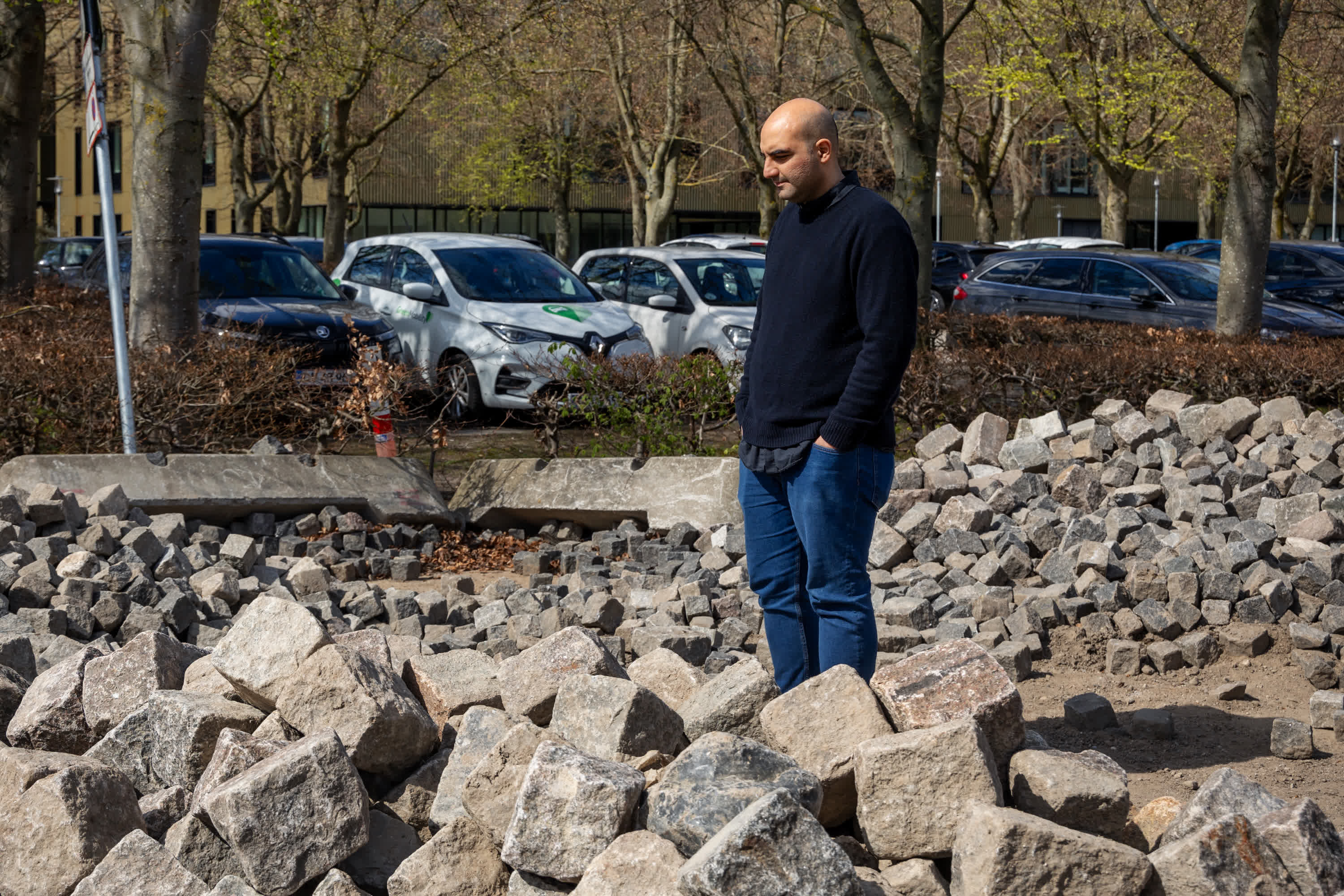In context: Electric vehicle sales are slowly picking up, but a significant roadblock is hindering even wider adoption – the limitations of today's lithium-ion batteries. They are expensive, and lithium is an environmentally unfriendly material in limited supply. While lithium iron phosphate batteries address some of the technology's disadvantages, a new breakthrough eliminates the need for lithium entirely.

Mohamad Khoshkalam, a researcher at the Technical University of Denmark (DTU), has developed a promising new material for solid-state batteries that could check all the boxes – capacity, safety, eco-friendliness, and low cost.
The material is primarily composed of elements found in rocks, specifically potassium and sodium silicates, which are some of the most abundant minerals in the Earth's crust. Additionally, it eliminates the need for expensive metals like cobalt, which are currently required for decent lithium-ion battery capacity and longevity.
This milky-white, paper-thin material serves as an excellent solid-state electrolyte layer inside a battery cell. Traditional lithium-ion batteries use liquid electrolytes that allow lithium ions to flow between the cathode and anode to generate a current. However, liquid electrolytes have downsides, such as potential leakage. Solid-state electrolytes are safer and can enhance performance.

Khoshkalam's electrolyte also conducts ions at around 40°C, which is close to room temperature. This means batteries using it could potentially be manufactured under normal conditions, rather than in expensive facilities that require highly controlled environments or extreme heat. Additionally, the material doesn't react negatively to moisture.
Transforming the electrolyte into a usable battery form is a multi-step process. Khoshkalam creates a potassium silicate powder, mixes it into a solution, and rolls it out into paper-thin layers. These layers are then molded into long, thin white tapes up to 10 meters in length and carefully dried. Finally, the tapes are moved to a special glove box environment to be assembled into complete solid-state battery cells with the anode and cathode components.
The potassium and sodium ions in these silicates are a bit larger and heavier than lithium ions, so they don't flow quite as easily. However, Khoshkalam has an undisclosed "recipe" to enhance their conductivity beyond what is typically achieved with lithium. His initial tests show strong performance for a solid-state electrolyte.

Of course, turning this material into real-world EV batteries will take time (or it may never even pass feasibility tests). The technology is still new compared to lithium-ion, which took over two decades to commercialize and continues to evolve. There are manufacturing scaling challenges, and new battery designs optimized for solid-state electrolytes will be needed.
Still, Khoshkalam's team aims to develop a demo battery within a couple of years to demonstrate the material's potential to companies. With silicate minerals covering 90 percent of the Earth, there is essentially an unlimited supply of cheap, eco-friendly battery ingredients waiting to be tapped. However, delivering on that promise without the hype fizzling out like so many previous attempts may prove to be the biggest hurdle.